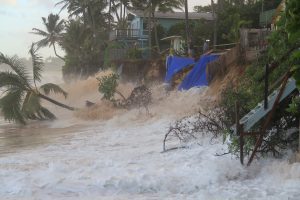
Confronting Shoreline Erosion on Oahu
Hawaii Sea Grant’s work featured in U.S. Climate Resilience Toolkit
Scroll down to view posts

Hawaii Sea Grant’s work featured in U.S. Climate Resilience Toolkit
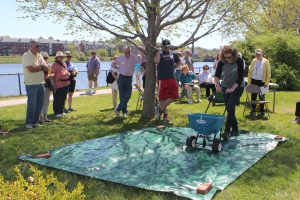
Some lawn care practices intended to get that lush green grass can affect nearby rivers and bays, but new research indicates that homeowners in the Northeast are willing to make changes to their lawn care routine to help protect the environment.
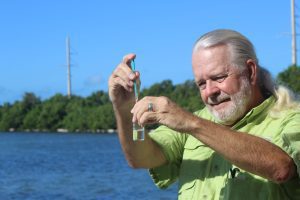
Two Florida Sea Grant agents are developing water quality monitoring projects in South Florida that enlist residents and volunteers on the front lines of citizen science.
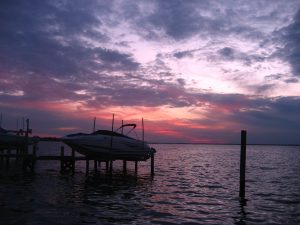
Recreational boating is a popular summertime activity in many states that can impact water quality. New Jersey Sea Grant Consortium works with boaters and marinas to minimize these impacts and assist businesses who wish to implement best management practices.
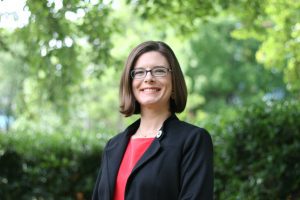
North Carolina Sea Grant’s Jessica Whitehead joins NOAA climate panel.
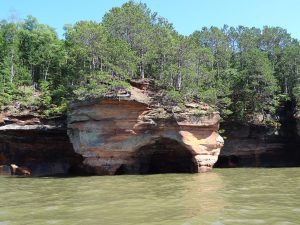
The mainland sea caves in the Apostle Islands National Lakeshore in Wisconsin are a big tourism draw, but they also can be dangerous. A real-time wave observation system project funded by Sea Grant is making the experience safer.
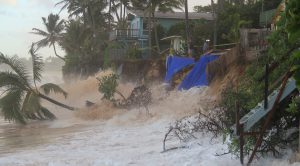
Hawai'i Sea Grant helps homeowners adapt and respond to coastal impacts.
New documentary short on Coastal Storm Awareness educates Emergency Managers, empowers Coastal Communities
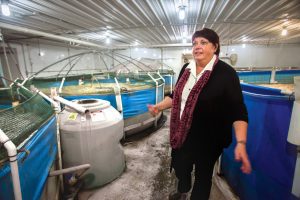
Illinois-Indiana Sea Grant is helping place more Indiana-farm-raised fish on menus in the Midwest through events like the Aquaculture Industry Tour for Culinary Professionals.
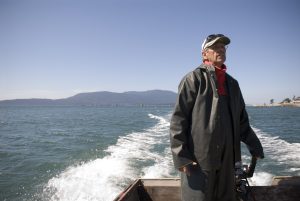
From cleaning and bleeding to direct marketing, casino contracts, and restaurant romance: Pete Granger and his Washington Sea Grant colleagues help Washington's tribes and other coastal communities resist an import invasion and take control of their fishing future.
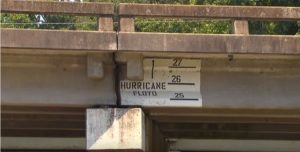
Sea Grant has extension agents at multiple NOAA laboratories across the country. Kodi Nemunaitis-Monroe is Sea Grant's Weather and Climate Extension Agent and is based at the National Severe Storms Laboratory in Oklahoma.
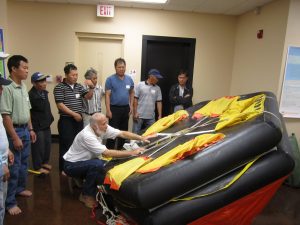
Commercial fishing can be a dangerous job. Thanks to Mississippi-Alabama Sea Grant Consortium Extension agents, 200 sailors have been trained as marine safety instructors. The training recently helped save two fishermen in a collision.
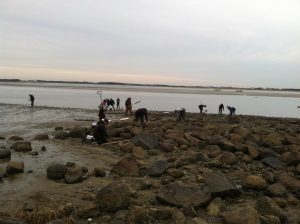
To help protect and increase the cultural and financial benefits of shellfish aquaculture, Woods Hole Sea Grant partnered with state and local agencies to produce a series of educational brochures about health and safety aspects of handling and consuming shellfish harvested in state waters.
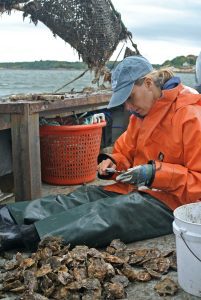
" Sea Grant is about the community we are connected to. We are a small staff, but we collaborate with a myriad of organizations to conduct research and get the word out about Connecticut’s coastal and maritime resources and challenges. Our strength is in our partnerships."
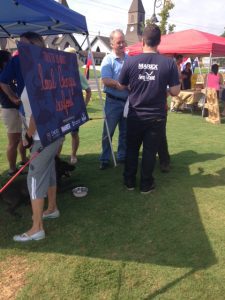
With a new Georgia Seafood Directory and research on the local food movement, Georgia Sea Grant is helping the state's fisheries tap into larger inland markets.
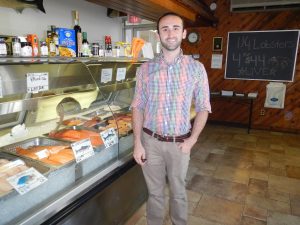
” I am focusing on identifying needs in the areas of outreach and education, as well as the production, safety, sustainability and marketability of seafood.”
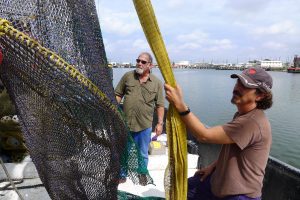
" Interacting with people and helping them, that’s the heart of Sea Grant."
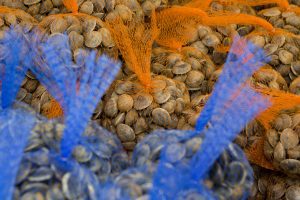
Florida Sea Grant's aquaculture specialist has been awarded the Distinguished Service Award by the US Aquaculture Society following years of work supporting fishers in the growing clam farming industry.
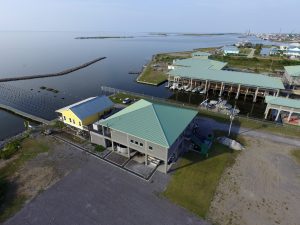
On average, 400 million oyster larvae were produced at the Grand Isle Oyster Hatchery annually. With the recent grand opening of the new hatchery facility, 1 billion Crassostrea virginica oyster larvae can be produced annually.
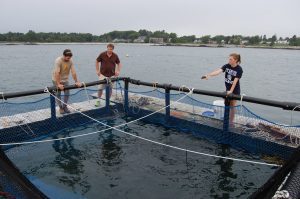
New Hampshire Sea Grant has assisted with the assembly of an aquaculture raft that will provide year-round local fish and shellfish, as well as promote integrated multi-trophic aquaculture in New England.
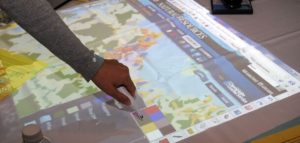
With support and training from Texas Sea Grant, Maryland Sea Grant Extension employs the weTable tool to facilitate decision-making processes in a range of communities.

Oregon Sea Grant's Coastal Natural Hazards Specialist stresses preparedness, not panic or indifference, in the wake of increased attention to the Cascadia Subduction Zone and the likelihood of an earthquake in Oregon.
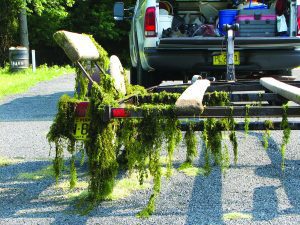
North Carolina Sea Grant works with citizen scientists to collect data on an invasive aquatic plant and with state partners to raise awareness on the threat that the plant presents in North Carolina.

The city of Chelsea, Massachusetts' Planning Board has new climate change adaptation guidance thanks to a group of students from Worcester Polytechnic Institute and MIT Sea Grant.
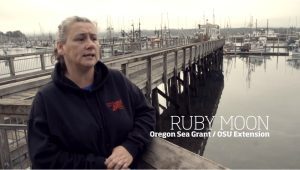
An Oregon Sea Grant Extension Agent is featured in an Oregon State University project.
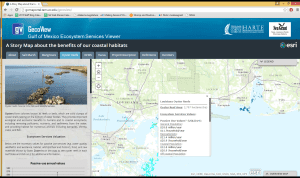
The Gulf of Mexico Ecosystem Services Viewer shows, in an interactive format, the values people place on salt marshes, mangroves and oyster reefs in the Gulf of Mexico. Based on research results, this tool fills an informational gap in the Gulf.
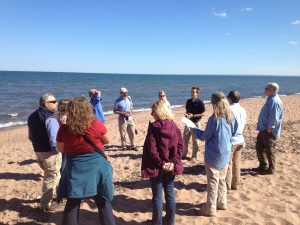
" I get to work with some of the most passionate, smart, and genuine people I have ever met, helping them to manage and protect some of the most beautiful and unique places in the country. "
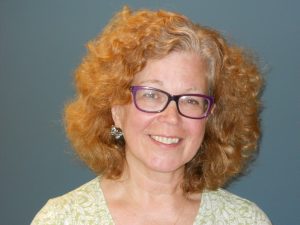
” Everyone needs to be informed about weather and consequently wave dynamics on the lake and in the nearshore zone.”
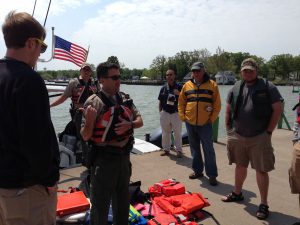
Ohio Sea Grant and the Ohio Department of Natural Resources will expand the Ohio Clean Marinas and Clean Boater programs statewide in 2015.
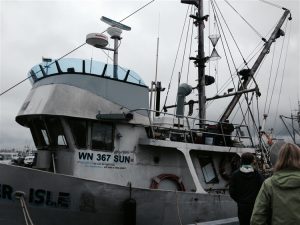
Sea Grant works with coastal communities to ensure that boaters on the water for fun and for work are knowledgeable and out of harm's way.
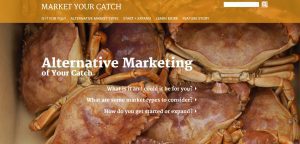
A collaborative, Sea Grant social science effort has led to the development of a website that guides fishermen through the process of entering alternative markets, bringing them closer to the consumer.
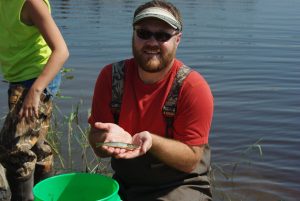
It's Safe Boating Week. Recreational anglers are also boaters. On Lake Michigan, those recreational anglers need to be aware of safety concerns surrounding commercial fishing trap nets. That's where Wisconsin Sea Grant steps in, sharing maps showing net locations.
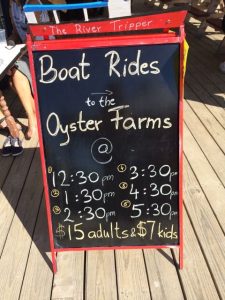
Tourists are increasingly interested in experiences that allow them to support and connect with the people and places that they visit. Maine Sea Grant is facilitating such experiences by assisting with the creation of oyster farm tours, combining the tourism and fisheries industries that already exist in Maine.
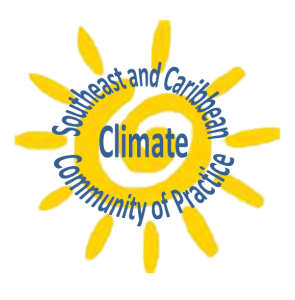
The Southeast and Caribbean Climate Community of Practice (CoP) brings together individuals from local, state, and federal governments, academia, non-profit organizations and the private sector in North Carolina, South Carolina, Georgia, Florida, and the Caribbean to apply climate science and assess how coastal communities and ecosystems can adapt to the impacts of climate variability and change. The CoP provides a forum for sharing lessons learned and best practices related to climate communication and adaptation. The CoP also provides education and networking opportunities to its members and their stakeholders to increase knowledge and awareness of climate science and to coordinate and perform outreach, extension, and communication related to climate change and its impacts in the Southeast and Caribbean region.
South Carolina Sea Grant The S.C. Sea Grant Consortium, in partnership with the Social and Environmental Research Institute, is working with blue crab fishermen in
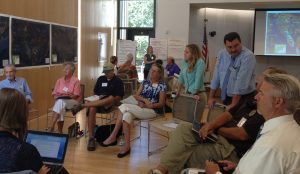
The S.C. Sea Grant Consortium, in partnership with the Beaufort County Planning Department, Carolinas Integrated Sciences and Assessments program, Social and Environmental Research Institute, and North Carolina Sea Grant, provided a participatory opportunity for Beaufort County to begin preparing for flooding associated with sea level rise. The project team utilized several available tools to engage local stakeholders in the process. A focus group participated in the Vulnerability and Consequences Adaptation Planning Scenarios process to identify local consequences of sea level rise and explore potential adaptation strategies. Sea level rise visualizations developed with data from NOAA’s Digital Coast Sea Level Rise Viewer tool helped stakeholders understand the risks of future coastal flooding due to rising seas. Public workshops were held to get broader input on adaptation strategies. A final report has been compiled for consideration by Beaufort County Council. This project has initiated a process of community learning that will increase the capacity of Beaufort County to adapt to sea level rise.
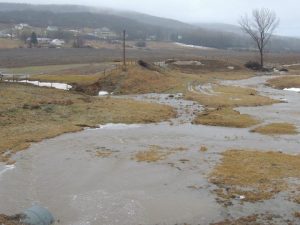
Lake Champlain Sea Grant is partnering with organizations across Vermont to help towns plan and prepare for climate change and flood resiliency.
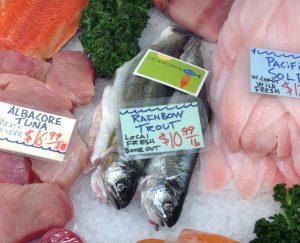
By incorporating social science into the equation, Great Lakes Sea Grant programs are helping to meet societal needs.
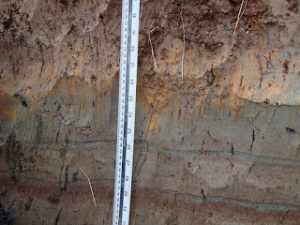
Washington Sea Grant’s hazard specialists expose the dangers on a coast where even the Coast Guard is vulnerable.
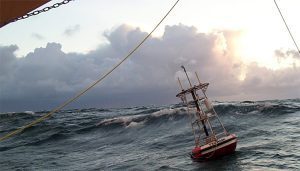
Tsunamis have been a reality for coastal communities for as long as humans have lived near the shore. NOAA Sea Grant has been working with coastal communities for many years to help residents understand tsunami risks, reduce their vulnerability and respond quickly.
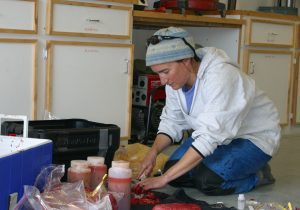
While many Sea Grant agents work with commercial fisheries, Sheffield’s role is unique. There are few commercial fisheries in the north of Alaska – the primary fishery there is a subsistence one. A study done on Saint Lawrence Island, in the southern Bering Strait, found that 80 percent of the population ate only subsistence food an average of 5 days per week.
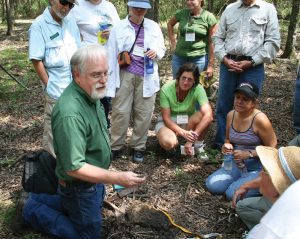
Dr. John Jacob takes a holistic approach to educating citizens and local officials, noting that the watershed is affected by a wide range of activities from landscaping and other things people do around their homes to large urban planning and habitat protection activities.

David Hart is Assistant Director for Extension with the University of Wisconsin Sea Grant Institute and a Senior Scientist with the UW Aquatic Sciences Center. His research and outreach spans geographic information science, urban planning, and coastal management.

Is there room on the water for everybody? If coastal communities are to remain sustainable, residents, visitors, policy makers, and regulators need new methods and information sources to harmonize the growing demand for access to their beaches and waterways. Researchers and extension specialists at Florida Sea Grant are making that challenge a priority.
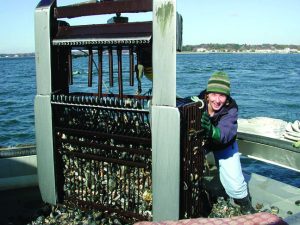
Connecticut Sea Grant assists aquaculture industry, bringing policy makers and stakeholders together, netting new benefits for ocean crop loss.
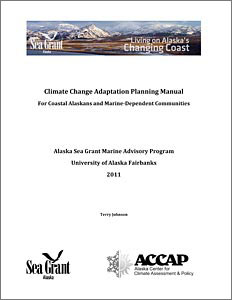
This manual is for Alaska extension professionals, community organizers, local planning officials, and teachers, whose task is to help individuals, families, businesses, communities, and local governments think through the meaning of climate change on the local scale.
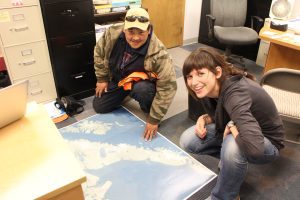
Alaska Natives are witnessing climate changing the ecology around their communities. Three southwestern communities are partnering with Alaska Sea Grant researchers to share their traditional hunting knowledge in an effort to conserve their marine environment.
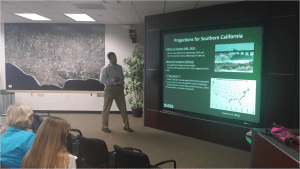
The Santa Barbara Area Coastal Ecosystem Vulnerability Assessment for Local Communities (SBA CEVALC) is aimed at assisting the Cities of Santa Barbara, Carpinteria, and Goleta and the County of Santa Barbara in planning for adaptation to climate change. Three of the state's leading ecological and climatological research programs including: the UCSB Coastal Long-Term Ecological Research Project, the Scripps Institution of Oceanography and USGS, are accomplishing the project in close collaboration with the three cities and County. Community input is integral to the project with staff from relevant city/county departments participating through workshops and review.
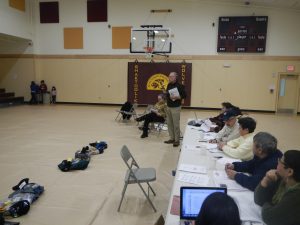
Alaska Sea Grant Marine Advisory agent Terry Johnson and others assisted the village of Shaktoolik with planning and implementing measures to “defend in place” against coastal storms.
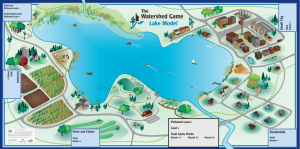
The Watershed Game is an interactive tool that helps community leaders understand the connections between land use, clean water and their community. Participants learn how a variety of land uses impact water and natural resources and learn how their choices can prevent adverse impacts.
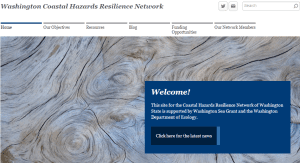
Washington Sea Grant, in collaboration with the Department of Ecology and with funding from NOAA, has developed a Coastal Hazards Resilience Network. The primary function of the network is to increase coordination and collaboration among state, federal and academic experts responsible for managing coastal hazards along the Washington Coast. The network is then applied at the local level to increase the resilience and capacity of local communities to plan for a respond to natural hazard events.
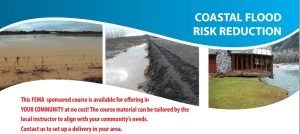
Washington Sea Grant staff members are certified to teach the FEMA-certified Coastal Flood Risk Reduction Course. This performance level course is designed to provide an introduction to flood-risk reduction opportunities within coastal communities.
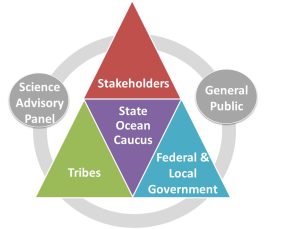
As a member of the State Ocean Caucus, Washington Sea Grant is a member of the State planning team charged by the State legislature to develop a marine spatial plan off Washington’s outer coast. The plan will provide better baseline information, ecosystem indicators, analyses to support coastal management decision-making, recommendations for siting new uses, implementation framework across agencies and sectors, integration of other existing policies and management and an adaptive management strategy. Washington Sea Grant plays a central role in this process by leading outreach, coordinating scientific review of data and projects, developing indicators of human well-being and economic health of the coast.

Classes, workshops, tours, displays, and web materials are provided to educate community members about practices they can employ on residential properties to reduce storm water impacts to receiving waters. The practices and information provided incorporate climate change adaptation benefits.
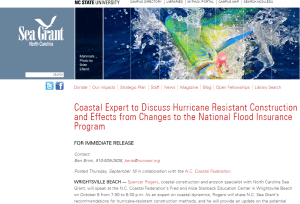
Officials at the state and local level, as well as property owners, seek North Carolina Sea Grant for technical expertise and to work with federal partners to find solutions for new and existing building adaptations that result in increased community resilience.
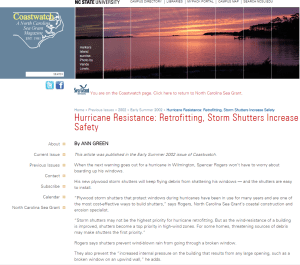
North Carolina Sea Grant extension partners with the N.C. Department of Insurance and the Institute for Businesses and Home Safety Fortified training program to increase building and design standards, including workshops to train builders, as well as training for building code inspectors and other professionals.
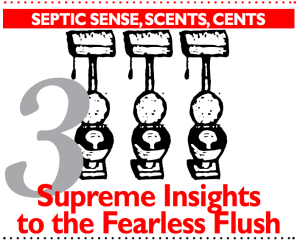
These workshops are designed to bring confidence to homeowners and businesses so that they can properly manage their on-site sewage systems. The workshops focus on the monitoring and maintenance of septic systems during all conditions and highlight special monitoring after an earthquake, during flooding events and power outages.
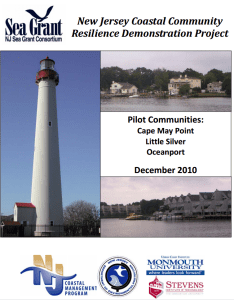
Coastal communities across the nation are faced with the challenge of how to adapt to coastal inundation associated with climate change and sea level rise. As part of the National Sea Grant Coastal Communities Climate Adaptation Initiative (CCCAI), the New Jersey Sea Grant Consortium (NJSGC) and its partners, New Jersey Department of Environmental Protection Office of Coastal Management (NJOCM), Monmouth University Urban Coast Institute (UCI) and Stevens Institute of Technology, conducted community-based, climate adaptation demonstration projects in Cape May Point, Little Silver and Oceanport, New Jersey.
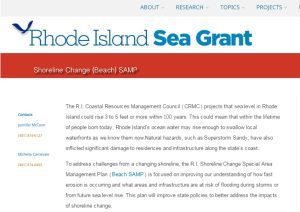
To address challenges from a changing shoreline, the Rhode Island Shoreline Change Special Area Management Plan (Beach SAMP) is focused on improving our understanding of how fast erosion is occurring and what areas and infrastructure are at risk of flooding during storms or from future sea level rise.
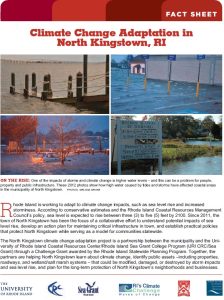
Using South Kingstown Land Trust as a pilot, tools have been identified for use by local conservation organizations in Rhode Island and beyond to assess vulnerability and identify strategies to begin to implement adaptation actions through conservation, management, and investment.
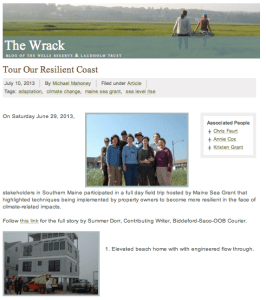
Maine Sea Grant has organized a number of tours, during which Southern Maine coastal property owners, local officials, and community members visit coastal properties in Saco, Wells, and Ogunquit where action has been or could be taken to make them more resilient to flooding, erosion, and extreme storm events.
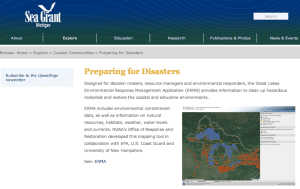
Michigan Sea Grant website to host Great Lakes Environmental Response Management Application (ERMA) tool, an online mapping tool for coastal pollution cleanup, restoration, and response efforts in the Great Lakes Basin, from Minnesota to New York in the United States and from Ontario to Quebec in Canada.
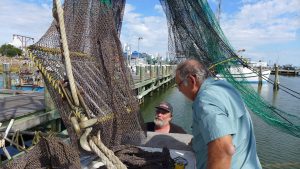
Texas Sea Grant, with funding from the National Fish and Wildlife Foundation (NFWF), has launched a pilot program to help shrimpers correctly install and operate turtle excluder devices, known as TEDs, and to develop a process to certify those that do. This vessel certification will help consumers choose “turtle-safe” wild-caught Gulf shrimp at their local supermarkets.
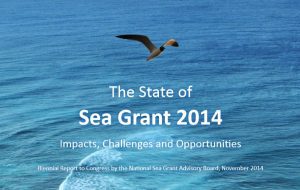
Impacts, Challenges and Opportunities of the National Sea Grant College Program

This web-based GIS decision system is designed to improve comprehensive land use planning so that economic, ecological, social, and cultural resources are integrated with future development in a sustainable way.
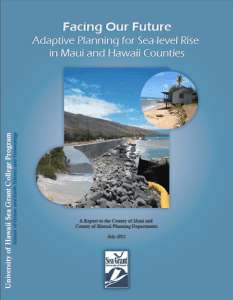
Five recommendations are presented to provide a foundation for improving shoreline planning for coastal hazards, including seal level rise, at the local level.
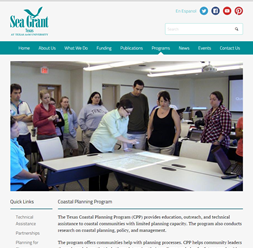
The Texas Coastal Planning Program helps community leaders through workshops that help them determine their readiness and plan for future needs with respect to coastal hazards, green infrastructure, water quality impairment and other issues related to sustainable development.
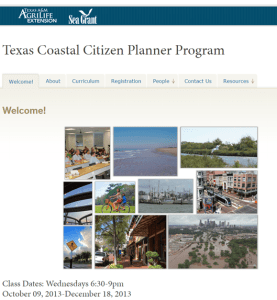
The Texas Coastal Citizen Planner program provides elected and appointed officials the knowledge and skills necessary to make informed land use decisions that lead to long-term hazard management, natural resource conservation, safer neighborhoods, and improved quality of life.
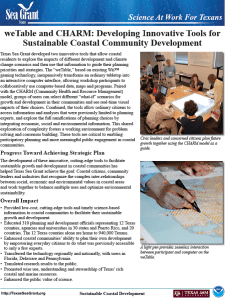
This affordable public participation tool, developed by Texas Sea Grant's Texas Coastal Watershed Program, allows teams to collaboratively explore and use computer-based data and programs in a workshop setting.
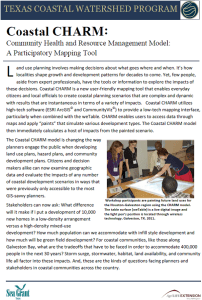
The Community Health and Resources Management (CHARM) mapping application is a robust citizen planning tool, built on CommunityViz and ARCMAP, that enables citizens and professionals alike to explore large and small development scenarios that reveal impacts, instantaneously, to the environment by the development, as well as impacts to the development (e.g., storm surge).
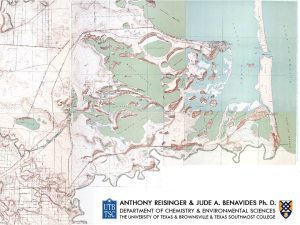
By geo-referencing and overlaying historic aerial photography on current digital photographs, Texas Sea Grant along with multiple other partners have identified habitat restoration priority areas along the Texas coast.
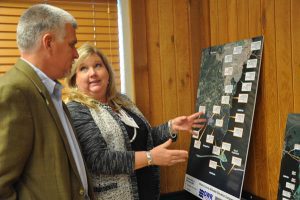
Mississippi-Alabama Sea Grant has provided technical assistance in the form of holding workshops, hosting webinars, participation in community floodplain management groups, and development of outreach materials specifically designed for community's who participate in the National Flood Insurance Program's Community Rating System.
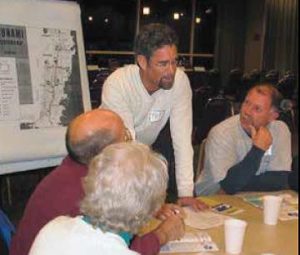
Oregon Sea Grant is planning a workshop for December that will bring together a network of coastal resilience researchers and practitioners to begin developing a broader statewide collaborative network of those interested in and working on coastal resilience issues.
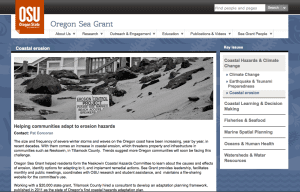
Oregon Sea Grant offers facilitation services that guide dialogue in the process of making important decisions about coastal planning and we serve as a bridge between university resources and local end users.
These are participatory mapping tools that a number of Sea Grant programs are using for community-based work addressing both climate and stormwater issues.
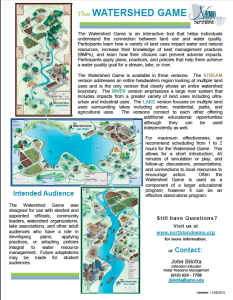
The Watershed Game is an interactive tool that was developed by Minnesota Sea Grant as part of the Northland Nonpoint Education for Municipal Officials (NEMO) program to help participants understand the connection between land use and water quality, as well as the degree to which implementing best management practices across land uses and sectors within a watershed is critical for reaching a water quality goal.
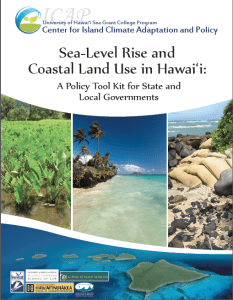
The purpose of this Tool Kit is to identify and explain key land use policy tools for state and local government agencies and officials to facilitate leadership and action in support of sea-level rise adaptation in Hawai‘i.
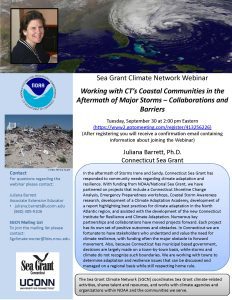
Please join us for the first Sea Grant Climate Network Webinar. Connecticut Sea Grant's Juliana Barrett will be discussing CT's work with coastal communities following major storms.
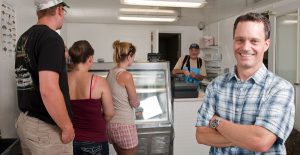
New Hampshire Sea Grant is heavily involved in research and extension efforts to address the best way to market seafood and keep fishermen financially afloat, including providing resources for direct market seafood sales and research into retailer and consumer preferences on seafood.
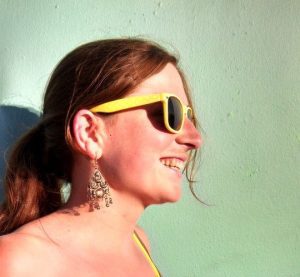
Jane is Wisconsin Sea Grant’s first social scientist, reflecting a new emphasis by Sea Grant to factor humans into its research program. She joined the Advisory Services team in October of 2012.
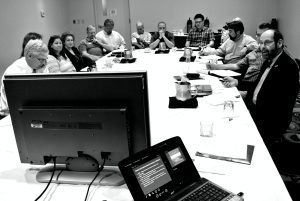
Louisiana Sea Grant passes along lessons learned from Hurricane Katrina to those impacted by the aftermath of Hurricane Sandy.
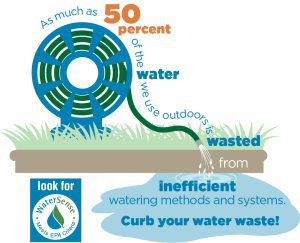
Water conservation has moved center stage in the Chicago suburbs. Summer shortages are a major concern here, and communities are looking to tackle the problem at its source: inefficient outdoor water use.
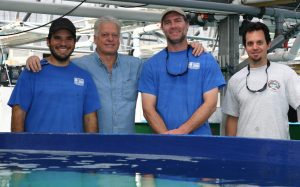
Florida Sea Grant researcher Daniel Benetti is currently assessing the environmental impacts of open-ocean aquaculture on the marine ecosystem with funding from a National Sea Grant aquaculture research initiative grant.
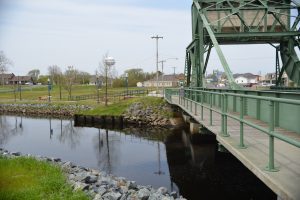
Looking to improve water quality both locally in the river and as part of a regional effort to restore the Chesapeake Bay watershed, the town of Laurel, Delaware is reimagining its historic riverfront with help from the Delaware Sea Grant College Program and University of Delaware landscape design faculty and students.
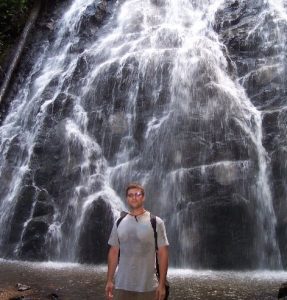
Michael Slattery first got involved with Sea Grant during his Ph.D. program when Sea Grant funded a portion of his research into rip currents. He is now a coastal processes extension specialist and works on rip current outreach and awareness.
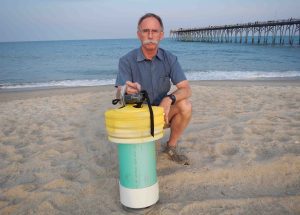
As the summer beach season opens, Spencer Rogers of North Carolina Sea Grant has new tools to better understand dangerous rip currents.
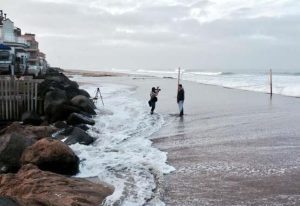
Bob Guza is a California Sea Grant funded researcher. He is an Integrative Oceanography Division Professor, Oceanography at Scripps Institution of Oceanography University of California, San Diego.
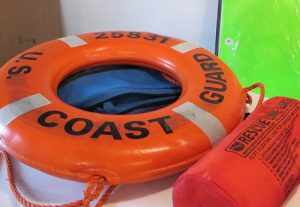
Elizabeth LaPorte works with colleagues at U-M and MSU to ensure the alignment of Sea Grant’s activities with the mission of the National Sea Grant College Program and the needs of Michigan’s stakeholders. She identifies opportunities to leverage research through public outreach and education.
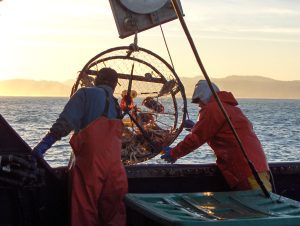
It might seem incongruous to talk of traffic disputes and costly collisions in an area as vast as the waters off the Pacific coast. But that’s the situation that afflicted the coast’s tribal and commercial crab fishers and its tug-and-barge and shipping operators for decades as they shared the same sealanes.
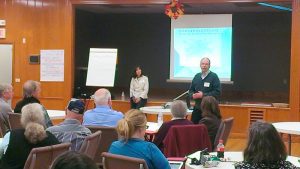
As Southern Maine Marine Extension Associate, Kristen has worked in that region of the state since 1999. Her office in Wells is housed at the Wells National Estuarine Research Reserve, facilitating partnerships with NOAA colleagues there. The majority of Kristen's work focuses on the interactions between the people, the resources, and the ecosystems of the coast.
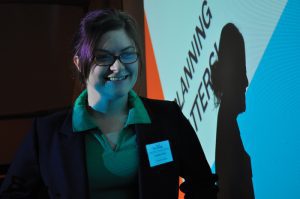
As Texas Sea Grant’s Coastal Planning Specialist, Heather Wade helps communities on the Texas coast plan for the future. With a toolkit that includes the Coastal Resilience Index, weTable and Community Health and Resources Management (CHARM) model, she leads community leaders through workshops that help them determine their readiness and plan for future needs with respect to coastal hazards, green infrastructure, water quality impairment and other issues related to sustainable development.

Dennis Hwang combines his science and law background to concentrate on implementing science into decisions of the community so that hurricane, tsunami, flood, erosion, wind and earthquake impacts are mitigated. He authored the Hawai'i Coastal Hazard Mitigation Guidebook, which is used in the land use process in Hawai'i.
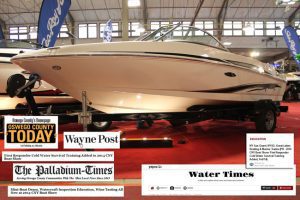
David White is the Recreation/Tourism Specialist and Great Lakes Program Coordinator for the New York Sea Grant Extension Program. Dave has been with Sea Grant since November of 1984 and is located at the State University of New York College at Oswego.
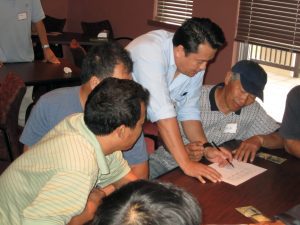
Peter Nguyen works very closely with Vietnamese-speaking fishermen to offer them technical assistance, such as providing information about new regulations and proposed legislation. Peter, a former commercial shrimper, has been with the Mississippi-Alabama Sea Grant Outreach Program since 2006. He works at Mississippi State University’s Coastal Research Center in Biloxi and works on fishing gear research, seafood marketing and other outreach efforts.
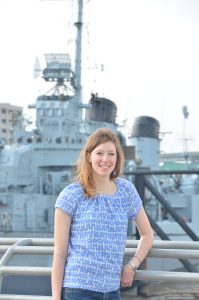
Lauren is an Extension Agent at Louisiana Sea Grant. She was a recipient of the John A. Knauss Marine Policy Fellowship in 2011 where she worked at the National Sea Grant Office. She has a masters in Oceanography and Coastal Sciences with a Minor in Applied Statistics from Louisiana State University.

Torie Baker is the Alaska Sea Grant Marine Advisory Program agent for the Prince William Sound region and is based in Cordova. As a MAP agent, she works with fishermen in marine safety training, business assistance and collaborative applied research. She is also a 20-year commercial salmon harvester in Prince William Sound, Copper River and Bristol Bay, and has worked extensively in Copper River salmon marketing initiatives. She holds a master's degree in adult education from the University of Alaska Anchorage.
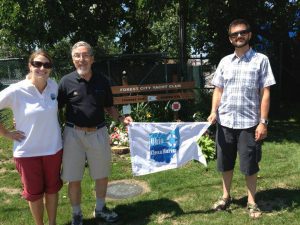
Sarah Orlando is an Extension Educator based in the Ohio Department of Natural Resources’ Office of Coastal Management in Sandusky. She is the coordinator for the Ohio Clean Marinas and Clean Boaters programs, voluntary, incentive-based programs to help maintain and improve coastal and Lake Erie
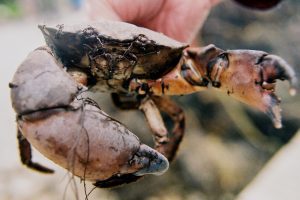
Sea Grant extension staff are tapping into a valuable resource — their out-of-state colleagues — to help generate new ideas for their own program’s efforts and improve collaboration within the nationwide Sea Grant network.
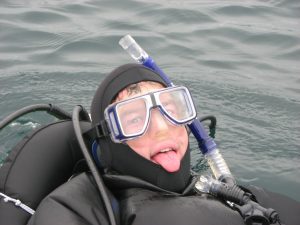
Dr. Miller is Washington Sea Grant’s coastal hazards specialist, working out of Peninsula College in Port Angeles as well as University of Washington’s Olympic Natural Resources Center in Forks. He works with coastal communities on the Olympic Peninsula to increase their ability to plan for and manage coastal hazards, including tsunami, chronic erosion, coastal flooding and hazards associated with climate change.